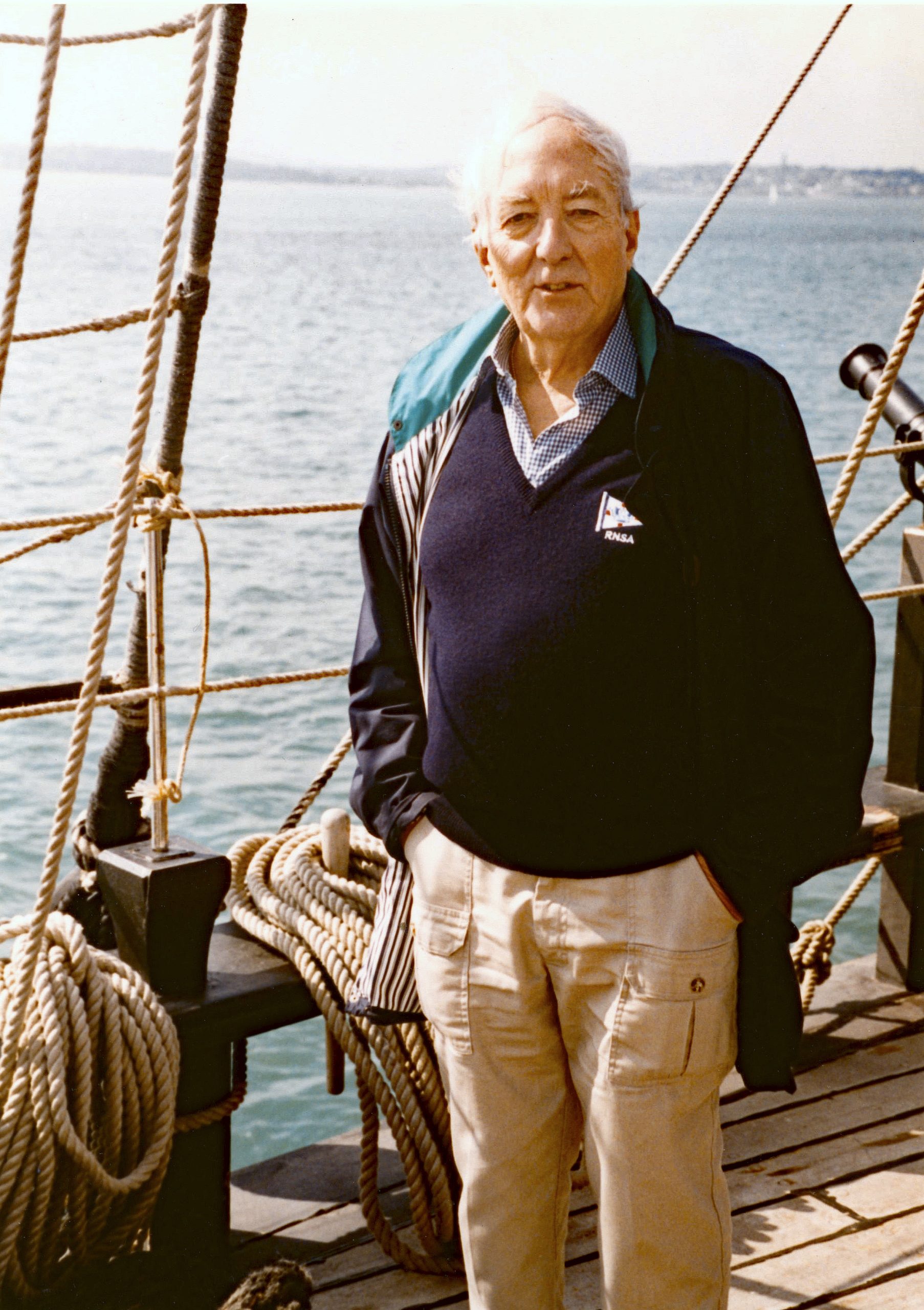“A dust whom England bore, shaped, made aware… under an English heaven.”
RUPERT BROOKE
Spring, another year. I walked along the river road, early in the morning… the field beyond the river green with winter wheat, the mist lying on the quiet water. And across the fields, the church steeple and its weathervane glinting gold in the sun.
England. His England. And its beauty was so intense that it cut me like a knife.
And I thought, as I do sometimes: what are you doing here? Your own country is still under snow, and these quiet foreign fields drift in the mist of a gentler season… what are you doing here? Where is home?
Home was where he was.
And where is it now that he’s gone?
When Richard Bolitho stands on a spring day in the village of Ripley, astride the Portsmouth Road and famed for its coaching inn, The Talbot, he thinks: “England, my England.” That is Douglas. Ripley is just south of here, in the heart of Surrey, and Douglas was a Surrey man born and bred. Douglas was Bolitho. He would never acknowledge that, but I know it to be true.
He was the most English of men, my dearest of men. The personification of that quiet river; those green, well-tended fields; that distant steeple, touched with gold, of the Norman church before the altar of which he lay in his coffin of English oak while the congregation sang the hymns he had sung as a choirboy, and was known to sing quietly to himself throughout his life when he was particularly happy… qualities you will understand if you are introspective and sensitive and know the English, and live among them still, after all these years, with a sense of otherness. Courage, staunchness, unostentatious faith, against the wars and ravages of centuries.
Yes, he was a very English man. A man who wrote of his country from his heart, when love of country was and is, perhaps, politically incorrect. He knew her history, her heroes, the blood, toil, tears and sweat of her wars, and illuminated them for decades for hundreds of thousands of readers; and he honoured the dead of those wars privately and faithfully, and never forgot them.
He was a gentle man, courteous, approachable, compassionate: non-confrontational, but as brave as a lion when necessary. In public humorous and relaxed, in private passionate, irreverent, uninhibited. But always bound by duty, honour, decency, loyalty.
He gave me his England as he gave me his heart, like a gift, and like a gift I cherish it. And I am aware of him here in this place he loved, in this slow and graceful English spring under these wide, quiet skies.
The longest night has turned toward the light. The darkest year has turned toward the spring. And death shall have no dominion.
Here is England. Here is his spirit. Here is home.
